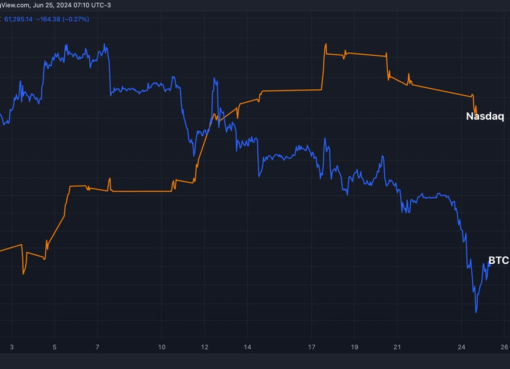Crypto investment platform CoinFLEX aims to rectify its liquidity shortage and restart user withdrawals by selling off bad debt through a new $47 million token offering.
The new token is known as Recovery Value USD (rvUSD) and will be worth $1 each. It is designed to help CoinFLEX recover $47 million in losses incurred by an account that was allowed to reach negative equity without being liquidated. It will be issued from June 28 through July 1, and the firm stated that it hopes to resume withdrawals by June 30.
While the identity of the individual whose account went negative is still unknown, CoinFLEX CEO Mark Lamb insisted in a June 27 announcement that the individual “is a high-integrity person of significant means.” What is known is that in a June 23 blog post, Lamb blamed the individual’s bad debt for halting withdrawals.
Hi everyone, we’re sharing our latest update on plans for re-enabling withdrawals on the platform https://t.co/34brwoDYuL
— CoinFLEX (@CoinFLEXdotcom) June 27, 2022
Under normal circumstances, the crypto lender liquidates accounts before they reach zero equity. However, Lamb explained that in this instance, CoinFLEX opened a one-of-a-kind “non-liquidation recourse account” wherein it agreed to not liquidate the account, and the borrower agreed to keep it filled with plenty of equity.
Things did not go according to plan as the account went negative, allegedly causing a liquidity crunch at the firm. Lamb added that this account was the only one on CoinFLEX with negative equity.
rvUSD will be issued to non-US resident “Sophisticated Investors” at a minimum subscription of $100,000 per investor. Investments come with a 20% annual percentage rate paid in rvUSD.
A Sophisticated Investor is one who has an annual income of at least $200,000, a total net worth of at least $1 million, and has performed the Know Your Customer (KYC) procedure on CoinFLEX.
In order to prevent this from happening again, Lamb stated that he would not issue that type of account anymore. His firm will also expand its transparency by making public the notional USD value of every account’s futures positions through an external auditing firm.
CoinFLEX CEO explains what happened and why he’s “highly confident” withdrawals will re-open June 30 https://t.co/P9GhSo6BM4 pic.twitter.com/5ERlmRNdYi
— Bloomberg Technology (@technology) June 27, 2022
In an interview on Bloomberg Technology with host Emily Chang on June 27, Lamb expressed his company’s belated need for more transparency. He feels that his firm should emulate the transparency that major decentralized finance (DeFi) firms have come to exemplify. He said, “We need to do at least as good as, if not, much better than DeFi with respect to transparency.”
“It has a damage to privacy, but we think that traders are going to find that worthwhile for the additional comfort that they get from knowing the risk and the leverage implicit in the system.”
CoinFLEX is just the latest in a growing list of centralized financial institutions and investment firms in crypto that have faced public criticism for potential insolvency. Most notable among this beleaguered group is Three Arrows Capital, led by Su Zhu and Kyle Davies, the Celsius crypto lending platform led by Alex Mashinsky, and crypto lender BlockFi led by Zac Prince.
Related: Crypto exchange FTX is looking into acquiring Robinhood: Report
CoinFLEX’s native token, FLEX Coin (FLEX), has taken a beating over the past four days by dropping 77% to $0.99 as of the time of writing, according to CoinGecko.




